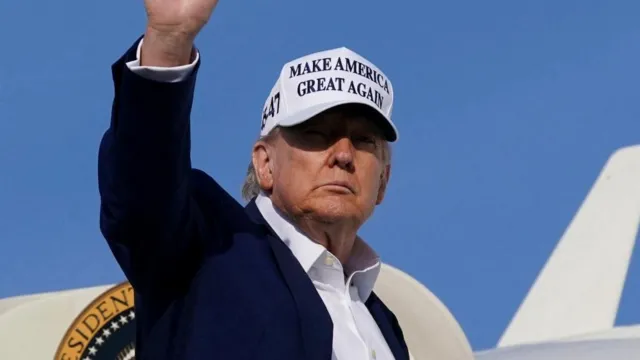US President Donald Trump has signed an executive order to begin the process of designating specific chapters of the Muslim Brotherhood as foreign terrorist organizations. The order highlights chapters in Lebanon, Egypt, and Jordan, citing their involvement in violence and destabilization campaigns that threaten regional stability, United States citizens, and American interests.
The Muslim Brotherhood, founded in Egypt in 1928 by schoolteacher Hassan al-Banna, is a pan-Islamist organization that advocates reviving Islamic principles to resist Western colonialism. Over the decades, it has expanded across the Arab world, gaining influence in multiple countries.
Under US law, designating an organization as a foreign terrorist group allows Washington to impose sanctions, freeze assets, and bar entry for its members. Following Trump’s order, Secretary of State Marco Rubio and Treasury Secretary Scott Bessent will lead the process to officially outlaw the identified chapters.
Some nations have already classified the Muslim Brotherhood as a terrorist group. Egypt banned the organization in 2013 after the military ousted President Mohamed Morsi, a Brotherhood member. Jordan followed suit in April this year, accusing the group of stockpiling weapons and attempting to destabilize the kingdom. Despite the ban, the Brotherhood retains significant popularity in Jordan, and its activities have previously faced minimal enforcement.
The move has received international attention, with Israeli Ambassador to the UN, Danny Danon, praising the decision as a significant step for regional security. Similarly, France has recently initiated measures to counter the Brotherhood’s influence, with President Emmanuel Macron calling for proposals to monitor its spread within Europe.
Trump’s executive order reflects Washington’s growing concern over the Muslim Brotherhood’s activities abroad and aligns with longstanding efforts by allied governments to curb the group’s influence. If fully enacted, the designation could strengthen US partnerships in the Middle East and reinforce measures against organizations perceived as threats to regional stability.

